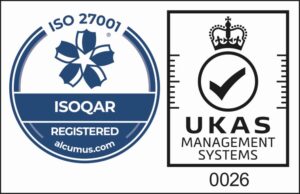Bridging the Divide: Overcoming the IT Skills Gap through Managed Services
The rapid pace of technological advancement has ushered in an era of unprecedented digital transformation across industries. Yet, this progress has also highlighted a growing challenge: the IT skills gap. As organizations strive to leverage cutting-edge technologies, the scarcity of skilled IT professionals becomes a barrier. This is where Managed Services step in, offering a powerful solution to bridge the divide and ensure seamless technology adoption.
The IT Skills Gap: A Looming Challenge
As technology evolves, the demand for skilled IT professionals has surged exponentially. However, the supply of talent with the required expertise has struggled to keep pace. This results in a glaring skills gap that impedes innovation and limits an organization’s ability to harness the full potential of modern technology.
Managed Services: A Strategic Solution
Managed Services offer a comprehensive strategy to address the IT skills gap and enable organizations to thrive in the digital age:
1. Access to Expertise: Managed Service Providers (MSPs) bring a wealth of specialized knowledge to the table. These experts are well-versed in the latest technologies and trends, providing organizations with access to the skill sets they need without the challenges of recruitment and retention.
2. Comprehensive Support: MSPs offer a wide spectrum of services, ranging from cybersecurity to cloud management, IT infrastructure, and more. This multifaceted approach ensures that businesses can tap into a variety of skills through a single partnership.
3. Flexibility and Scalability: The ever-changing nature of technology necessitates a flexible approach. Managed Services allow organizations to scale their IT resources as needed, accommodating shifts in demand without the constraints of hiring and training new personnel.
4. Cost-Effectiveness: Recruiting and retaining skilled IT professionals can be expensive. Managed Services provide a cost-effective alternative by offering expert support on a subscription basis. This model eliminates the burden of recruitment costs, training expenses, and employee benefits.
5. Focus on Core Objectives: By outsourcing specific IT functions to experts, organizations can redirect their internal resources toward strategic initiatives that drive growth and innovation. This minimizes the risk of resource drain on non-core activities.
6. Rapid Problem Resolution: MSPs are equipped to swiftly address IT issues, minimizing downtime and optimizing operational efficiency. With their prompt response, organizations can maintain seamless operations without experiencing productivity bottlenecks.
7. Proactive Approach: Managed Services go beyond reactive support. Providers often adopt a proactive stance, monitoring systems to identify potential issues before they impact operations. This preventive approach prevents disruptions and enhances stability.
A Path Forward: Unlocking Potential
In an era where technology is a business enabler, the IT skills gap can pose serious hurdles. Managed Services present a clear path forward, offering organizations the opportunity to access top-tier expertise, remain competitive, and embrace digital transformation without the constraints of talent shortages.
By embracing Managed Services, organizations not only address the IT skills gap but also set the stage for a future where technology propels innovation, growth, and success. In a world where agility and adaptability are paramount, partnering with Managed Service Providers becomes a strategic imperative that unlocks the full potential of the digital era.




